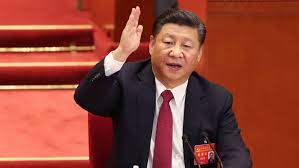Chinese President Xi Jinping has made no secret of his desire to deflate China’s property bubble. But according to people with knowledge of government deliberations, he is facing resistance over a measure aimed at curbing housing speculation: a nationwide property tax.
Earlier this year, Xi assigned to Han Zheng, the most senior of China’s four vice premiers, the task of rolling out the levy much more widely, according to the report.
Many economists and analysts have long argued that such a tax could make it more expensive to speculate on property and help bring down prices. That would help reduce the financial burden on middle-class families, in line with Mr. Xi’s goal of a more even distribution of wealth.
However, Beijing is now settling for a limited tax plan because of strong pushback, while a proposal involving state-provided affordable housing is emerging as an alternative, the WSJ reported.
An initial proposal to test-run the tax in some 30 cities has been scaled back to around 10, the report said.
In an essay in the ruling Communist Party journal Qiushi, published by the official Xinhua news agency on Friday, Xi had called for China to “vigorously and steadily advance” legislation for a property tax.
China has mulled such a tax for over a decade but faced resistance from stakeholders including local governments themselves, who fear it would erode property values or trigger a market sell-off.
In internal debates, the feedback to Xi’s property-tax plan from both the party’s elites and its rank-and-file members has been overwhelmingly negative, the WSJ report said, citing the people familiar with the deliberations.















